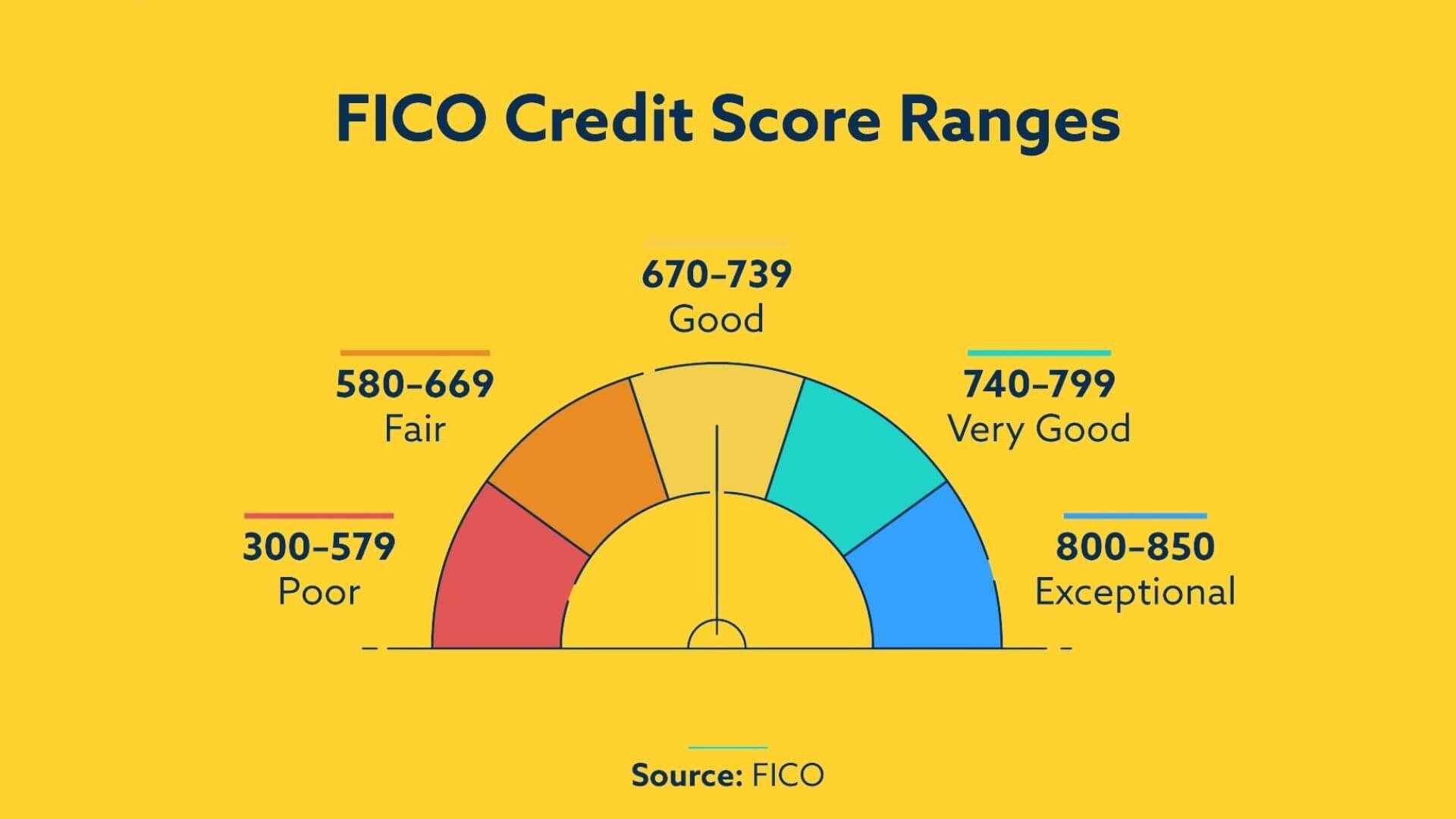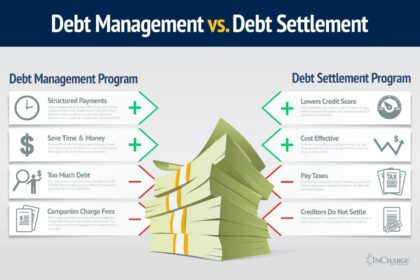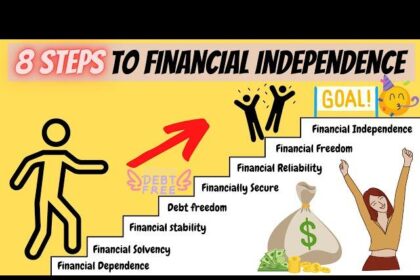In a world where financial decisions can significantly shape our lives, the concept of a credit score looms as both a powerful tool and a daunting mystery. Many individuals find themselves navigating the intricate web of credit—an unseen score that can influence everything from loan approvals to interest rates. But what if the power to enhance that score lay within your grasp? In this article, we delve into the art and science of credit score improvement, uncovering practical strategies and insights that can transform your financial standing. Whether you’re starting from scratch or simply looking to boost your existing score, join us as we explore the pathways to a healthier credit profile and arm you with the knowledge to take charge of your financial future.
Budgeting Tips
Taking control of your finances is essential, and effective budgeting can be a game-changer in improving your credit score. Start by tracking your income and expenses, allowing you to identify areas where you can save. Its effectiveness lies in the details, so consider using a simple spreadsheet or dedicated budgeting apps to keep your finances visible. Here are some strategies to enhance your budgeting practices:
- Set Realistic Goals: Establish achievable saving targets each month.
- Use the 50/30/20 Rule: Allocate 50% of your income for necessities, 30% for wants, and 20% for savings and debt repayment.
- Review Regularly: Examine your budget at least monthly to make necessary adjustments.
Moreover, don’t forget to prioritize debt repayment in your budget. High-interest debts can stall the improvement of your credit score, making it crucial to tackle them head-on. Here is a simple table highlighting effective debt repayment techniques:
| Method | Description |
|---|---|
| Snowball Method | Pay off the smallest debts first to build momentum. |
| Debt Avalanche | Focus on paying off debts with the highest interest rates first. |
| Debt Consolidation | Combine multiple debts into one loan for better management. |
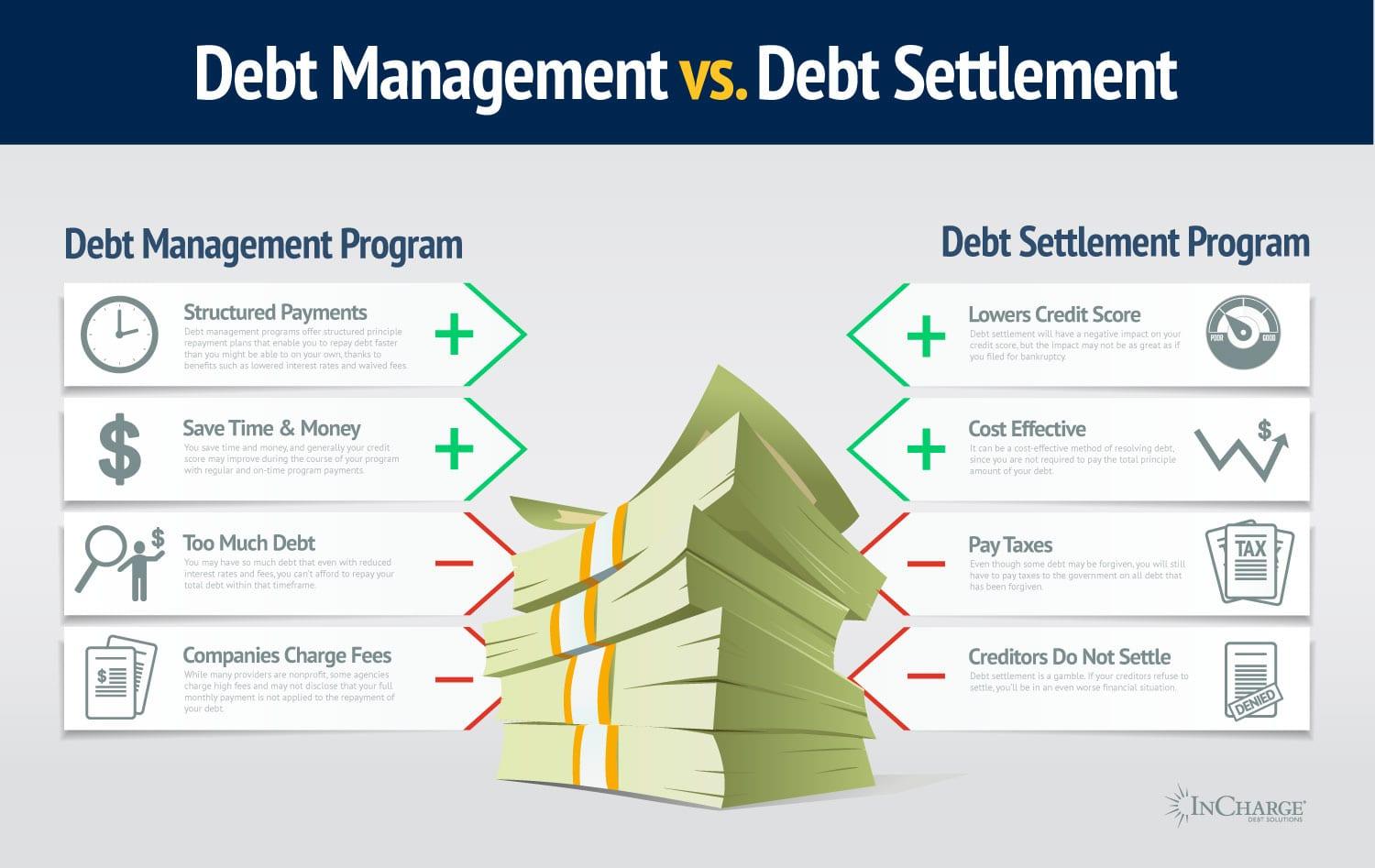
Debt Management
Managing debt effectively is crucial when it comes to improving your credit score. Proper handling of your outstanding obligations helps indicate to lenders that you’re a responsible borrower. Here are some strategies that can assist in monitoring and reducing your debt:
- Create a Budget: Establish a clear budget that accounts for all income and expenses to ensure you can allocate funds towards debt repayment.
- Prioritize Payments: Focus on paying off high-interest debt first while making minimum payments on others to save on interest over time.
- Consider Debt Consolidation: Explore options like consolidating multiple debts into a single loan for easier management and potentially lower interest rates.
- Stay Consistent: Make all payments on time, as late payments can significantly damage your credit score.
It’s important to recognize that rebuilding your credit score is a gradual process, requiring dedication and consistent effort. One effective tactic involves keeping your credit utilization ratio below 30%. This ratio represents the percentage of your total available credit that you are using, and maintaining it at a lower level can positively influence your score. Here’s a simple table that illustrates how different utilization percentages can impact your credit profile:
| Credit Utilization Ratio | Potential Impact on Credit Score |
|---|---|
| 0% – 10% | Excellent |
| 11% – 30% | Good |
| 31% – 50% | Fair |
| 51%+ | Poor |

Saving for Retirement
Planning for the future goes hand in hand with managing your finances and improving your credit score. By understanding how your credit score influences your ability to secure loans for a home or a retirement property, you can take proactive steps to ensure financial stability in your later years. Boosting your credit score can lead to better interest rates on loans, which means lower monthly payments and more money in your pocket for retirement savings. Here are some practical tips to enhance your credit score:
- Pay bills on time – Consistent payment history is crucial.
- Reduce credit utilization – Keep your credit card balances low.
- Check your credit report – Regularly review for errors and disputes.
As you work on improving your credit score, it’s also vital to explore retirement savings options that complement your financial health. A healthy score can give you access to investment properties or safer borrowing options for starting a business, both of which can amplify your retirement savings. Consider diversifying your portfolio with the following vehicles:
| Investment Type | Potential Return |
|---|---|
| 401(k) Plans | Up to 10% annually |
| IRAs | 6-8% on average |
| Mutual Funds | Varies (4-12%) |
| Real Estate | 8-12% annualized |
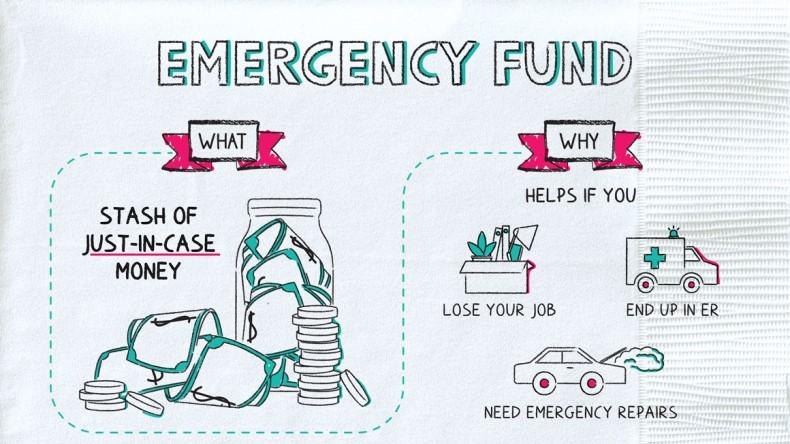
Emergency Fund Planning
Establishing an emergency fund is a crucial step toward achieving a solid financial foundation, particularly when focusing on credit score improvement. An emergency fund acts as a safety net, providing individuals with the ability to manage unexpected expenses without relying on credit cards or loans, which can negatively impact their credit scores. To build this fund, consider the following steps:
- Assess Your Needs: Calculate at least three to six months’ worth of living expenses.
- Set Clear Goals: Determine a target amount based on potential emergencies (car repairs, medical bills, etc.).
- Automate Savings: Set up automatic transfers from your checking account to your emergency fund savings account.
When your emergency fund is robust, you’ll feel more secure and less tempted to use credit for unexpected costs. This proactive approach not only protects your financial stability but also plays a role in maintaining a healthy credit utilization ratio—an essential factor in determining your credit score. To further illustrate this relationship, consider the following table:
| Emergency Fund Benefits | Impact on Credit Score |
|---|---|
| Reduces reliance on credit | Improves credit utilization ratio |
| Provides financial peace of mind | Encourages on-time bill payments |
| Helps avoid debt accumulation | Promotes a healthier credit history |
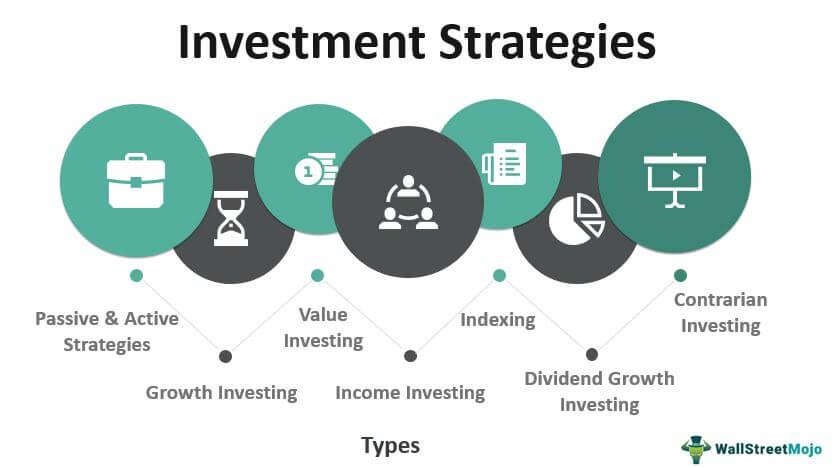
Investment Strategies
Improving your credit score can significantly impact your and financial flexibility. By understanding your credit report and its various components, you can take deliberate steps to enhance your creditworthiness. Key actions to consider include:
- Reviewing your credit report: Regularly check for errors or inaccuracies that could negatively affect your score.
- Paying bills on time: Set up reminders or autopay options to ensure timely payments.
- Reducing outstanding debt: Focus on paying down credit card balances and loans to lower your overall credit utilization ratio.
- Limiting new credit inquiries: Avoid opening multiple credit accounts at once to minimize any potential red flags to lenders.
As you work towards improving your credit score, it’s essential to adopt a long-term mindset, treating this journey as part of your overall financial health. Consider the following strategic tips to effectively manage your credit improvement:
| Tip | Description |
|---|---|
| Establish a budget | Track your expenses and allocate funds for debt repayment. |
| Utilize credit responsibly | Use credit cards wisely, under 30% utilization. |
| Set credit goals | Create specific, measurable objectives for your credit score. |
| Consider credit counseling | Seek professional help if needed for debt management. |

Stock Market Investing
Investing in the stock market can be an effective way to grow wealth over time. However, before diving into investments, it’s crucial to assess your credit score, as it can influence your overall financial health. A robust credit score can enhance your ability to secure loans or favorable interest rates on investment properties. As you work on improving your credit score, consider these key factors:
- Payment History: Consistently paying bills on time boosts your score.
- Credit Utilization: Maintain a low balance on credit cards relative to your limits.
- Length of Credit History: The longer your credit history, the better.
- Credit Mix: A diversified range of credit types can positively impact your score.
- New Credit: Limit applications for new credit to avoid unnecessary inquiries.
Once you’ve embarked on the journey to improve your credit score, it’s wise to leverage your enhanced financial standing for investment opportunities. Here’s how you can align your stock market strategy with your improved credit profile:
| Investment Strategy | Benefits |
|---|---|
| Dividend Investing | Steady income stream through dividend payouts. |
| Index Funds | Diversified exposure with lower management fees. |
| Growth Stocks | Potential for significant capital appreciation over time. |

Real Estate Investment
Improving your credit score is a critical step in preparing for . A higher credit score not only enhances your chances of securing a favorable mortgage but also opens doors to lower interest rates, enabling significant savings over time. To embark on the journey of credit improvement, consider the following strategies:
- Pay Bills on Time: Consistent, on-time payments positively affect your credit history and score.
- Reduce Debt: Aim to lower your credit card balances. Keeping your credit utilization ratio below 30% is a commonly recommended practice.
- Check Your Credit Report: Regularly review your credit reports for inaccuracies or errors. Disputing these can lead to score improvements.
As you work to enhance your credit score, remember that patience is key—improvements can take time, but the impact on your real estate endeavors is worth the wait. To provide a clearer understanding, here’s a simple overview of how credit score ranges affect loan terms:
| Credit Score Range | Loan Approval Likelihood | Typical Interest Rate |
|---|---|---|
| 300 – 579 | Low | 7.5% or higher |
| 580 – 669 | Fair | 5.5% – 7.4% |
| 670 – 739 | Good | 3.5% – 5.4% |
| 740+ | Excellent | Below 3.5% |
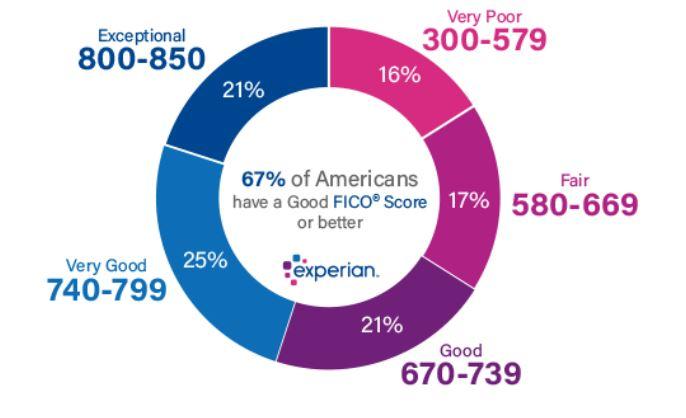
Credit Score Improvement
Improving your credit score is a vital step towards achieving financial stability and unlocking better loan options. A solid credit score can lead to lower interest rates, better insurance premiums, and enhanced chances of approval for rental applications. To embark on this journey, start by understanding the key factors that influence your score:
- Payment History: Timely payments account for about 35% of your total score. Set up reminders or automate payments.
- Credit Utilization: Keep your credit usage below 30% of your total available credit limit.
- Length of Credit History: A longer credit history can bolster your score. Avoid closing old accounts that are in good standing.
- Types of Credit: A mix of installment loans and revolving credit can positively influence your score.
- New Credit Inquiries: Be mindful of how often you apply for new credit, as too many inquiries in a short period can lower your score.
Once you have a clear grasp of these factors, you can implement actionable steps to boost your creditworthiness. Monitoring your credit report regularly is essential; consider the following methods to enhance your score:
| Action | Description |
|---|---|
| Set Up Alerts | Receive notifications for payment due dates. |
| Dispute Errors | Address any inaccuracies found in your credit report. |
| Increase Credit Limits | Request higher limits on existing accounts without increasing spending. |
| Become an Authorized User | Have someone with a strong credit history add you to their credit card. |

Financial Independence
Achieving true financial autonomy often hinges on one’s credit score. This three-digit number can determine not just your eligibility for loans, but also the interest rates you’ll pay, making it an essential aspect of financial health. Improving your credit score is a journey that requires patience and strategy, but the rewards can be significant. By focusing on a few key actions, you can set yourself on a path towards better credit and, ultimately, greater financial freedom:
- Pay bills on time – Late payments can negatively impact your score for years.
- Reduce credit utilization – Aim to keep your usage under 30% of your available credit.
- Avoid opening too many new accounts – Each new application can lower your score slightly.
Your credit history is a vital piece of your financial puzzle. Regularly monitoring your report can help you catch issues before they escalate. A few simple steps can lead to a significant improvement in your score over time:
| Action | Impact on Score |
|---|---|
| On-time payments | + 35% (largest factor) |
| Credit mix | + 10% (variety is beneficial) |
| Hard inquiries | – 5% (caution advised) |

Passive Income Streams
Exploring ways to enhance your credit score not only strengthens your financial foundation but can also open doors to various passive income opportunities. Once you’ve successfully elevated your credit standing, it can lead to better interest rates on loans, which can be strategically utilized for investments. This might include real estate purchases, where favorable financing enables you to generate rental income or even flip properties for profit. The key is to leverage the improved score to make informed financial decisions that align with your long-term wealth-building goals.
Additionally, a high credit score can also empower you to access credit cards that offer cash back or rewards for everyday purchases. By diligently managing these accounts and capitalizing on their benefits, not only do you secure perks, but you can also cultivate a steady stream of passive income. Consider these strategies to maximize your financial growth:
- Invest in dividend-paying stocks – Use low-interest loans to purchase stocks that provide regular dividends.
- Online business ventures – Establish e-commerce sites or affiliate marketing blogs that can generate income with minimal effort over time.
- Peer-to-peer lending – Engage in lending through platforms that connect borrowers with investors, obtaining interest payments.

Tax Planning
When improving your credit score, effective can play a pivotal role. Understanding the interplay between your income, debt, and taxation is essential to creating a robust financial foundation. Maximizing deductions and strategically timing your income can help you maintain a healthier credit utilization ratio. Here are some key points to consider:
- Consider itemizing deductions if it benefits your tax situation.
- Review your tax withholding to avoid owing a large balance at the end of the year.
- Allocate tax refunds towards paying down existing debts.
Additionally, keeping accurate records of your financial activities can aid in both tax preparations and credit score assessments. A well-organized financial documentation system will help you stay on top of payments and improve your credit report accuracy. Below is a simple table highlighting practices that can enhance your credit score while effectively managing your taxes:
| Practice | Benefit |
|---|---|
| Pay debts on time | Boosts payment history, a key credit factor |
| Keep credit card balances low | Improves credit utilization ratio |
| Regularly check credit reports | Identifies errors that can be disputed |

Retirement Accounts (IRA, 401k)
When aiming to improve your credit score, it’s essential to understand the varied roles that retirement accounts like IRAs and 401(k)s play in your overall financial health. While these accounts are designed primarily for long-term savings and investment, the way you manage them can indirectly affect your credit profile. For example, if you regularly contribute to a 401(k), you demonstrate financial discipline and commitment to your financial future. This discipline can be a positive reflection on your creditworthiness, as lenders often view consistent saving habits as a sign of responsible financial behavior.
Moreover, having a diverse financial portfolio, including retirement accounts, can give lenders confidence in your ability to manage credit obligations wisely. To further enhance your credit score while investing in your future, consider these strategies:
- Consistent Contributions: Make regular contributions to your retirement accounts.
- Take Advantage of Employer Matches: If your employer offers matching contributions for your 401(k), maximize this benefit.
- Monitor Your Accounts: Keep an eye on your account performance to adjust your contributions accordingly.
- Diversify Investments: Diversifying the assets in your retirement accounts can lead to better long-term growth.

Financial Planning for Families
Improving your credit score is a crucial step in ensuring solid financial health for your family. A higher credit score not only enhances your chances of being approved for loans and credit cards, but it also helps secure lower interest rates, which can save your family a significant amount of money over time. Here are some practical steps to help boost your credit score:
- Check Your Credit Report: Regularly review your credit report for inaccuracies or fraudulent activity.
- Make Payments on Time: Consistently paying bills on time is one of the most effective ways to improve your score.
- Reduce Debt: Aim to lower any existing debts, particularly credit card balances.
- Limit New Credit Applications: Too many inquiries in a short period can negatively impact your score.
Another effective strategy involves maintaining a healthy credit utilization ratio, which is the percentage of your available credit that you are using. Aim to keep this ratio below 30%. For families, managing this metric can mean the difference between achieving budget goals and incurring unnecessary fees. Here’s a simple table to illustrate how credit utilization affects your credit score:
| Credit Limit | Credit Used | Utilization Ratio |
|---|---|---|
| $10,000 | $2,000 | 20% |
| $10,000 | $3,500 | 35% |
| $10,000 | $4,500 | 45% |
As seen above, keeping your credit used lower can significantly contribute to enhancing your overall score. By prioritizing these strategies, families can build a stronger financial foundation, enabling them to better manage expenses and plan for future financial goals.
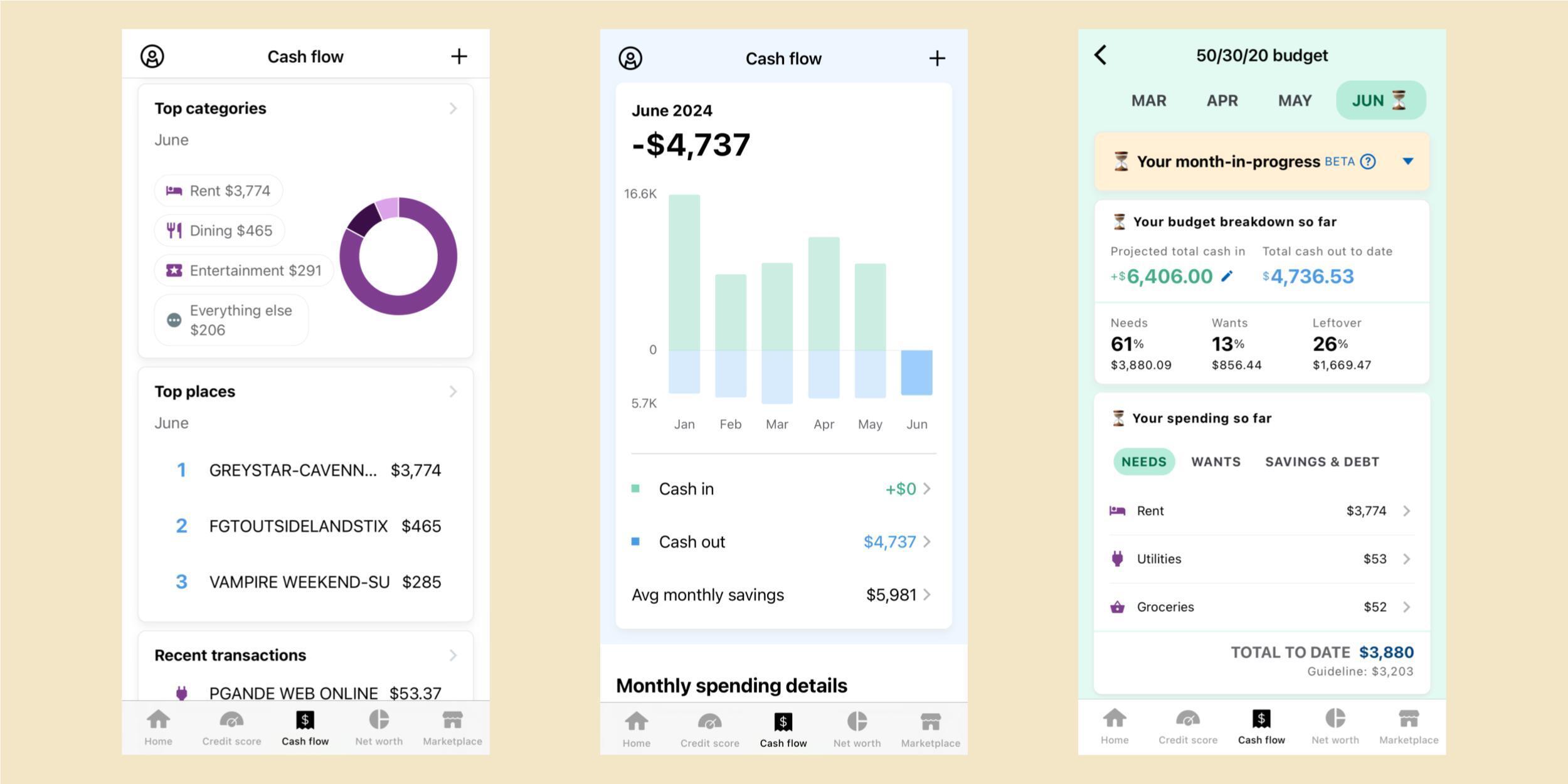
Personal Finance Apps
With the right at your fingertips, you can take charge of your credit score improvement journey with ease and efficiency. These tools not only empower you to track your expenses and create budgets but also provide insights into your credit reports and scores. Some of the most popular apps include:
- Mint: Offers budgeting tools and tracks your credit score for free.
- Credit Karma: Provides credit score monitoring and personalized tips for improvement.
- YNAB (You Need A Budget): Helps you allocate funds to specific goals, including debt reduction.
- Experian: Allows you to monitor your credit score and receive alerts for changes.
In addition to tracking your expenses, these apps often feature powerful tools for understanding the factors influencing your credit score. Many provide simulations that show how certain actions—like paying off debt or increasing your credit limit—can positively affect your score. Here’s a quick comparison table of a few apps and their standout features:
| App Name | Credit Score Monitoring | Budgeting Tools | Cost |
|---|---|---|---|
| Mint | Yes | Yes | Free |
| Credit Karma | Yes | No | Free |
| YNAB | No | Yes | $11.99/month |
| Experian | Yes | No | Free |
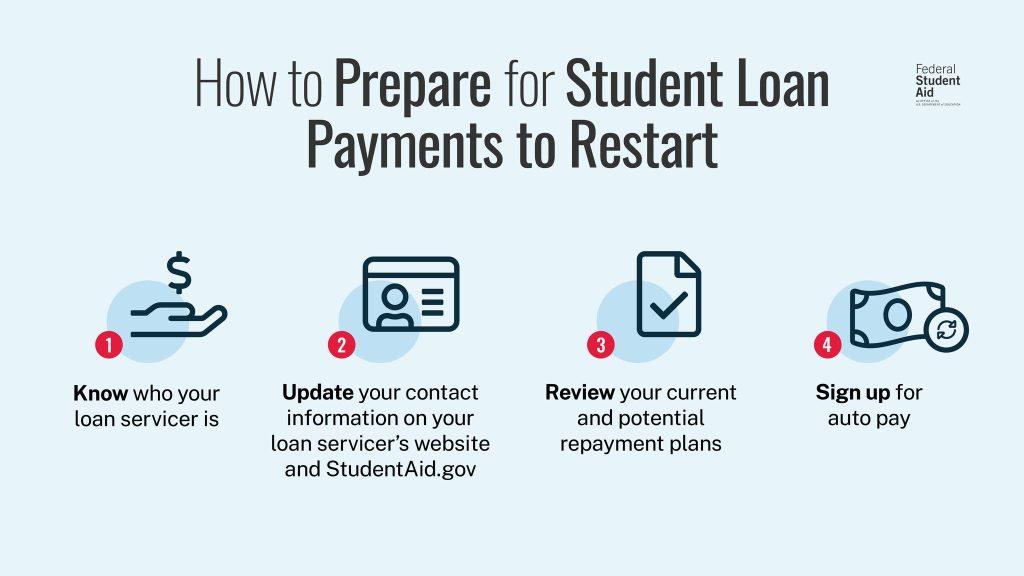
Student Loan Repayment
Managing student loans effectively can significantly impact your credit score in the long run. The repayment history constitutes a crucial component of your credit profile, and timely payments demonstrate your reliability as a borrower. To optimize this aspect, consider the following strategies:
- Set up automatic payments: Automating your payments ensures they are made consistently and on time, reducing the risk of late payments.
- Explore income-driven repayment plans: These plans can lower your monthly payments based on your income, making it easier to manage your budget.
- Stay informed about deferment and forbearance options: If you’re facing financial hardship, these options can provide temporary relief while maintaining your credit standing.
Additionally, paying more than the minimum required amount can help reduce your overall loan balance and improve your credit utilization ratio. Tracking your loans and understanding their impact on your credit score can empower you to make informed financial decisions. Consider maintaining a table for clarity:
| Loan Type | Interest Rate | Current Balance | Monthly Payment |
|---|---|---|---|
| Federal Loan | 4.5% | $12,000 | $150 |
| Private Loan | 6.8% | $8,000 | $200 |

Debt-Free Journey
Embarking on a journey towards financial freedom often includes a pivotal goal: improving your credit score. This score serves as a reflection of your financial health and is crucial for securing loans, mortgages, and favorable interest rates. To enhance your credit standing, consider the following strategies:
- Timely Payments: Always pay your bills on time to avoid negative impacts.
- Reduce Credit Utilization: Aim to use less than 30% of your available credit.
- Diversify Credit Types: A mix of revolving and installment accounts can boost your score.
- Check Your Credit Reports: Regularly review for inaccuracies and dispute any errors promptly.
Additionally, understanding how credit scoring models work can empower you to take actionable steps. Typically, your credit score is calculated based on several factors, including payment history, credit utilization ratio, and the length of your credit history. Here’s a simple breakdown:
| Factor | Percentage of Score |
|---|---|
| Payment History | 35% |
| Credit Utilization | 30% |
| Length of Credit History | 15% |
| New Credit | 10% |
| Types of Credit Used | 10% |

Credit Card Management
Managing your credit card effectively is crucial for enhancing your credit score. Start by keeping track of your spending and understanding your credit utilization ratio, which should ideally stay below 30% of your total credit limit. Use tools like budgeting apps to ensure you don’t exceed your limit, as exceeding it can negatively impact your score. Additionally, consider setting up automatic payments to avoid late fees, which also affect your credit rating. Regularly reviewing your credit card statements helps spot any errors or unauthorized charges, allowing you to address them promptly.
Another important aspect is timely payments. Always aim to pay your bills before the due date; even a small delay can lead to a decline in your score. If you find yourself struggling to remember payment dates, a simple solution is to create a payment calendar or utilize reminders on your phone. Furthermore, try to pay more than the minimum payment each month to reduce the principal amount and interest accrued over time. Here’s a simple table summarizing key practices for effective :
| Practice | Benefit |
|---|---|
| Track Spending | Maintain a healthy utilization ratio |
| Automatic Payments | Prevent late payments and fees |
| Review Statements | Identify potential errors or fraud |
| Pay More Than Minimum | Reduce principal and overall interest |
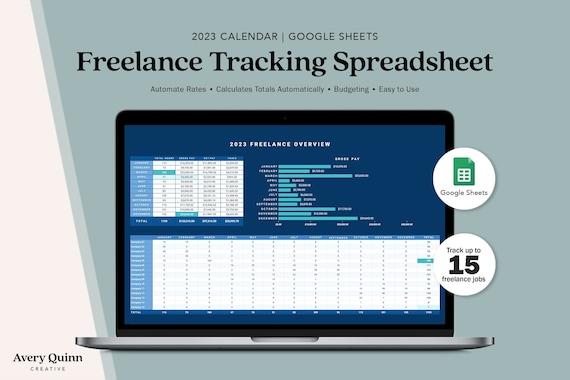
Budgeting for Freelancers
For freelancers, maintaining a robust financial plan is essential not only for day-to-day expenses but also for long-term credit health. A well-documented budget can aid in tracking income fluctuations and managing cash flow effectively. Here are some key components to consider:
- Income Tracking: Keep a detailed record of all projects, including payment timelines and amounts.
- Expense Management: Categorize your expenses into necessary and discretionary spending to identify areas where you can cut costs.
- Emergency Fund: Build a safety net that can cover at least 3-6 months of expenses to buffer against slow income periods.
Creating a budget using a simple table can streamline the process of monitoring your financial status. Here’s a basic example to illustrate how freelancers might structure their finances:
| Category | Estimated Monthly Income | Estimated Monthly Expenses |
|---|---|---|
| Client Projects | $3,500 | N/A |
| Freelance Platforms | $1,000 | N/A |
| Rent | N/A | $1,200 |
| Utilities | N/A | $300 |
| Insurance | N/A | $150 |

Frugal Living Tips
Improving your credit score can feel daunting, but with some strategic moves, you can elevate your financial standing without breaking the bank. One of the simplest yet most effective strategies is to pay your bills on time. Set up reminders or automate payments to avoid late fees, which can negatively impact your score. Additionally, keep an eye on your credit utilization ratio; aim to use less than 30% of your available credit. By staying disciplined with your spending, you can boost your score while adhering to a frugal lifestyle.
Another key tactic is to regularly review your credit report for inaccuracies. Mistakes happen, and even a small error can harm your score. Make it a habit to check your report at least once a year, and dispute any discrepancies you find. Moreover, consider maintaining older credit accounts. The length of your credit history influences your score; by keeping old accounts active, you can show lenders stability and reliability. By combining these tips, you can enhance your creditworthiness while living a savvy and budget-conscious life.

Side Hustles for Extra Income
In the ever-evolving landscape of personal finance, exploring additional avenues for income generation can significantly enhance your credit score over time. Taking on side hustles not only provides a financial boost but also encourages responsible money management, an essential factor for improving your credit. Consider engaging in activities such as freelance writing, graphic design, or virtual assistance. These options allow you to leverage your skills while maintaining flexibility in your schedule. Here’s a list of ideas to inspire your next side hustle:
- Online Tutoring: Share your expertise in subjects like math or languages.
- Pet Sitting: Combine your love for animals with the opportunity to earn extra cash.
- Handmade Crafts: Sell your creations on platforms like Etsy for a creative profit.
By dedicating some of your side income towards managing existing debts or saving for future needs, you create a sustainable cycle of financial health. Additionally, it may also be beneficial to consider participating in the gig economy through driving for rideshare services or delivering groceries. These options offer flexible hours, allowing you to balance work and personal life efficiently. Take a look at the table below for a quick overview of various side hustle opportunities and their potential earnings:
| Side Hustle | Potential Earnings per Hour |
|---|---|
| Freelance Writing | $20 – $100 |
| Online Tutoring | $15 – $50 |
| Rideshare Driving | $10 – $25 |
| Pet Sitting | $15 – $30 |
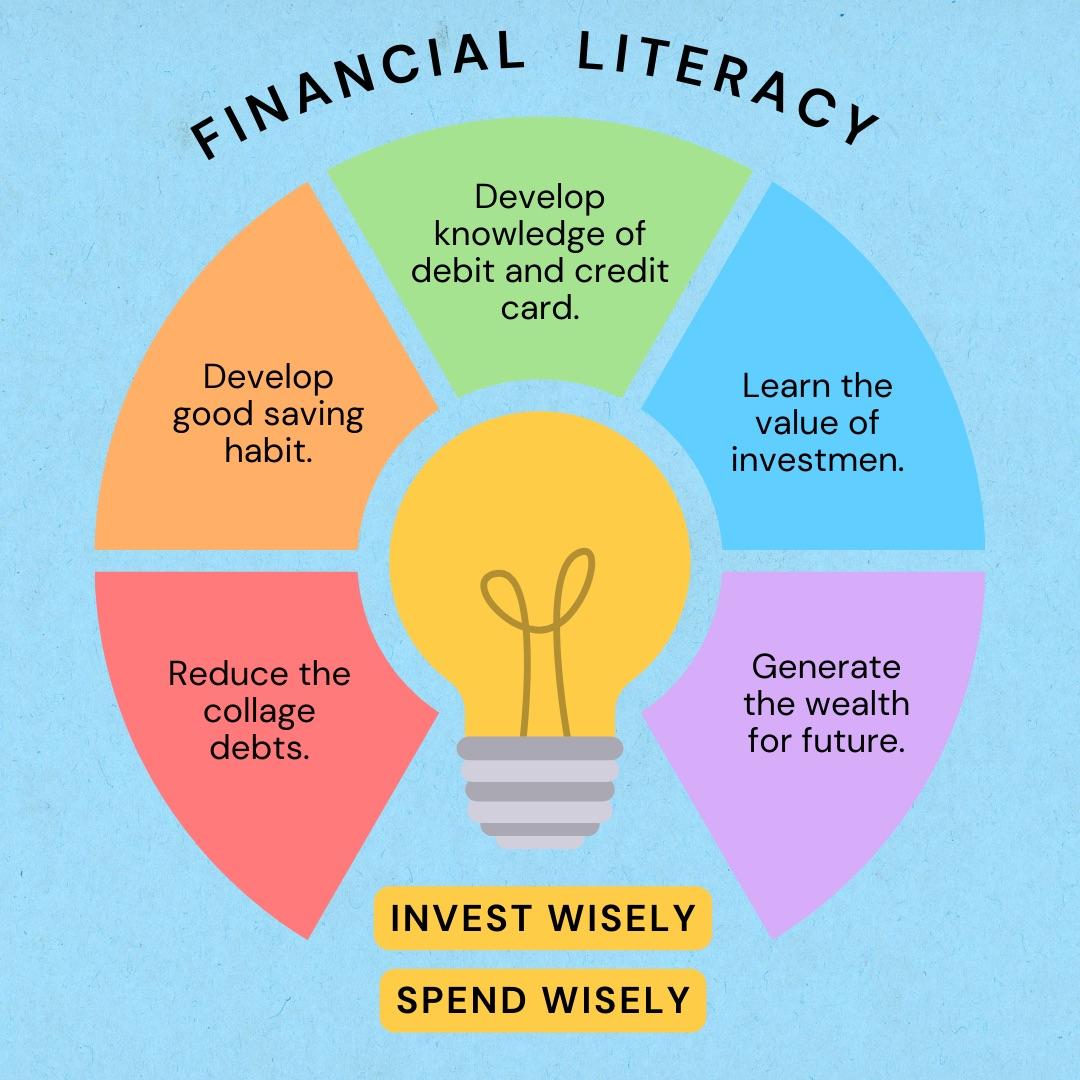
Financial Literacy Education
Understanding the components that contribute to your credit score is fundamental for anyone aiming to improve their financial health. Your credit score is influenced by various factors, including payment history, credit utilization, length of credit history, new credit, and types of credit used. By prioritizing these areas, you can take significant steps to enhance your score:
- Consistent Payments: Ensure that bills and debts are paid on time to build a solid payment history.
- Manage Credit Utilization: Keep your credit utilization ratio below 30% to show that you are not overly reliant on credit.
- Diverse Credit Types: Having a mix of credit accounts, such as personal loans and credit cards, can positively impact your score.
To visualize how these elements interact, consider the following table, which demonstrates the typical influence each category has on a credit score:
| Credit Score Factor | Percentage Contribution |
|---|---|
| Payment History | 35% |
| Credit Utilization | 30% |
| Length of Credit History | 15% |
| Types of Credit Used | 10% |
| New Credit Inquiries | 10% |
By focusing on these strategies, you can actively work toward improving your credit score, enhancing your financial opportunities in the process. Always monitor your progress and make adjustments as needed to maintain a healthy credit profile.

Insurance Planning
Insurance plays a vital role in your overall financial health, and improving your credit score can have a significant impact on your insurance premiums. Many insurance providers assess your credit history to determine the level of risk you present as a policyholder. A higher credit score often leads to lower rates, allowing you to save money on essential policies such as auto, home, or life insurance. To improve your credit score, consider the following strategies:
- Regularly check your credit report for errors and dispute any inaccuracies.
- Pay down existing debt to lower your credit utilization ratio.
- Make payments on time to build a positive payment history.
- Limit new credit applications to avoid hard inquiries that can temporarily impact your score.
Switching to a better score isn’t just about saving money; it’s about securing peace of mind. As your credit score improves, consider reviewing your current insurance policies to ensure you’re not missing out on better coverage options or discounts. Many insurers offer competitive rates for those with higher credit scores. Check out the following table for insights on how credit scores can influence average insurance premiums:
| Credit Score Range | Average Annual Premium ($) |
|---|---|
| 300 – 579 | 3,000 |
| 580 – 669 | 2,500 |
| 670 – 739 | 2,000 |
| 740 – 799 | 1,500 |
| 800 – 850 | 1,200 |

Long-Term Wealth Building
Improving your credit score is not just about obtaining loans or credit cards; it’s an essential step towards building long-term financial stability. A strong credit score opens doors to better interest rates and loan terms, which can significantly reduce the cost of borrowing. Here are a few key steps to help enhance your credit score:
- Pay Your Bills on Time: Establish a habit of paying all bills promptly to avoid late payments.
- Reduce Credit Card Balances: Aim to keep your credit utilization ratio below 30% for optimal impact.
- Check Your Credit Report: Regularly review your credit report for errors or discrepancies that could negatively affect your score.
- Avoid Unnecessary Hard Inquiries: Limit the number of new credit applications to prevent hard inquiries that can temporarily lower your score.
As you cultivate your credit profile, it’s important to understand how these actions contribute to your overall financial health. For instance, the table below illustrates the correlation between credit scores and interest rates on various loans:
| Credit Score Range | Typical Interest Rate on Mortgage | Typical Interest Rate on Auto Loan |
|---|---|---|
| 300 – 579 | 5.8% – 8.0% | 15.0% – 20.0% |
| 580 – 669 | 4.5% – 5.7% | 10.0% – 14.9% |
| 670 – 739 | 3.5% – 4.4% | 6.0% – 9.9% |
| 740 – 799 | 3.0% – 3.5% | 4.0% – 5.9% |
| 800+ | 2.5% – 3.0% | 3.0% – 3.9% |

Saving for College
Investing in your child’s education can be one of the most rewarding financial decisions you make, and is pivotal to ensuring that opportunity becomes a reality. Start by building a dedicated savings plan that outlines your financial goals and determines how much you need to set aside each month. Consider these popular options for college savings:
- 529 College Savings Plans: Tax-advantaged accounts specifically designed for education expenses.
- Coverdell Education Savings Accounts (ESAs): Flexible accounts that allow savings for K-12 expenses as well.
- Uniform Transfers to Minors Act (UTMA) Accounts: Custodial accounts that can be used for any purpose, including college.
As you make strides towards funding your child’s education, it’s essential to monitor and improve your credit score. A higher credit rating can lead to lower interest rates on student loans and other financing options. Regularly check your credit report for discrepancies, keep your credit utilization below 30%, and pay your bills on time. By following these simple rules, not only are you preparing for college expenses, but you’re also setting a positive financial example for your child. Below is a brief comparison of some factors influencing your credit score:
| Factor | Impact on Score |
|---|---|
| Payment History | 35% |
| Credit Utilization | 30% |
| Length of Credit History | 15% |
| Types of Credit | 10% |
| Recent Inquiries | 10% |

Estate Planning
When navigating the intricate world of financial planning, many overlook the pivotal role a strong credit score plays in securing a solid estate for future generations. A higher credit score not only facilitates loan approvals and lowers interest rates but also enhances your overall financial standing, making it easier to accumulate assets. Key strategies to improve your credit score include:
- Paying Bills on Time: Consistently making payments by their due dates directly impacts your payment history.
- Reducing Credit Card Balances: Keeping utilization below 30% of your credit limit can significantly boost your score.
- Checking Credit Reports: Regularly review your reports for inaccuracies and dispute any errors you find.
By focusing on these aspects, you create a more favorable financial backdrop for your endeavors. Establishing a trustworthy reputation with creditors can lead to opportunities for greater funding and investment options in the long run. The interplay between your credit score and potential estate value can also be illustrated through a simple comparison:
| Credit Score Range | Estimated Interest Rate | Typical Loan Amount |
|---|---|---|
| 300-579 | High (15%+) | $5,000 – $20,000 |
| 580-669 | Moderate (10% – 15%) | $20,000 – $100,000 |
| 670-739 | Good (5% – 10%) | $100,000 – $300,000 |
| 740+ | Excellent (3% – 5%) | $300,000+ |

Financial Goals Setting
Setting achievable financial goals is crucial in the journey towards credit score improvement. By identifying specific targets, you pave the way for actionable steps that maximize your financial health. Consider breaking down your objectives into short-term and long-term goals. These could include:
- Regularly checking your credit report to identify errors and understand your current score.
- Establishing a budget that allows for timely payment of bills and debts.
- Reducing outstanding debts gradually by focusing on high-interest accounts first.
- Increasing your credit limit responsibly, without adding new debt.
To stay on track and measure progress, consider creating a simple table that outlines your goals, timelines, and the status of each task. This approach not only keeps you organized but also lets you celebrate small wins along the way. Here is an example of how you can structure your financial goals:
| Goal | Timeline | Status |
|---|---|---|
| Check credit report for errors | 1 month | In Progress |
| Set a monthly budget | 2 weeks | Completed |
| Pay off credit card debt | 6 months | Pending |
| Request credit limit increase | 3 months | Pending |

Money Management for Couples
Improving your credit score as a couple can be a pivotal step toward achieving financial stability and shared goals. Start by reviewing both partners’ credit reports, which you can obtain for free once a year from each of the major credit bureaus. Look for any discrepancies or outdated information that may be negatively impacting your scores. Once you’ve identified any issues, consider disputing errors and addressing items that may reduce your score. Communicate openly about credit histories—understanding each other’s financial habits will foster trust and teamwork. Here are some key actions you can take together:
- Pay bills on time: Set reminders or automate payments to ensure no dues are missed.
- Reduce credit utilization: Aim to use less than 30% of available credit.
- Limit new credit applications: Each hard inquiry can slightly lower your score.
Another essential aspect of credit score improvement is managing joint accounts wisely. When opening a joint credit card or loan, both partners should commit to responsible usage and repayments. To track your progress as a couple, consider creating a simple table that outlines your credit score goals, current scores, and action steps. This can serve as a motivating tool to stay focused. Here’s an example to guide your planning:
| Partner | Current Credit Score | Goal Credit Score | Action Steps |
|---|---|---|---|
| Partner 1 | 680 | 720 | Pay all bills on time; Reduce credit usage |
| Partner 2 | 650 | 700 | Dispute inaccuracies; Limit new credit inquiries |

Family Budgeting
Creating a sustainable family budget is essential for improving your credit score. A well-structured budget allows you to track your income and expenses closely, ensuring that you never miss a payment. Here’s how to effectively manage your family’s finances:
- Set Clear Goals: Define short-term and long-term financial goals to guide your budgeting decisions.
- Track Spending: Monitor every expense to identify where cuts can be made.
- Emergency Fund: Allocate funds for unexpected expenses, reducing the likelihood of falling behind on bills.
Utilizing tools and resources can enhance your budgeting process. Online calculators and budgeting apps can simplify tracking. Consider this simple table to categorize and prioritize family expenses:
| Expense Category | Percentage of Income |
|---|---|
| Housing | 30% |
| Transportation | 15% |
| Food | 15% |
| Healthcare | 10% |
| Entertainment | 5% |
| Savings | 25% |

Smart Spending Habits
Developing is crucial for enhancing your credit score and achieving financial stability. Start by establishing a strict budget that outlines your monthly income and expenses, ensuring you allocate funds for essentials while avoiding unnecessary splurges. To make this process easier, consider leveraging spending tracking apps or simple spreadsheets that help you visualize your cash flow. Make it a goal to categorize your spending into needs, wants, and savings, allowing you to identify areas where you can cut back and direct additional funds towards paying down debt.
Another effective strategy is to adopt the practice of paying bills on time. Late payments can significantly harm your credit score, so set up reminders or automate payments whenever possible. Additionally, try using the “50/30/20 rule” to manage your financial priorities effectively, which suggests spending 50% of your income on necessities, 30% on discretionary expenses, and saving 20% for future needs. Below is a table to visualize how this can translate into a monthly budget based on a hypothetical income of $3,000:
| Category | Percentage | Amount ($) |
|---|---|---|
| Needs | 50% | 1,500 |
| Wants | 30% | 900 |
| Savings | 20% | 600 |
Incorporating these into your lifestyle not only fosters a healthier financial outlook but also encourages discipline and long-term financial success.
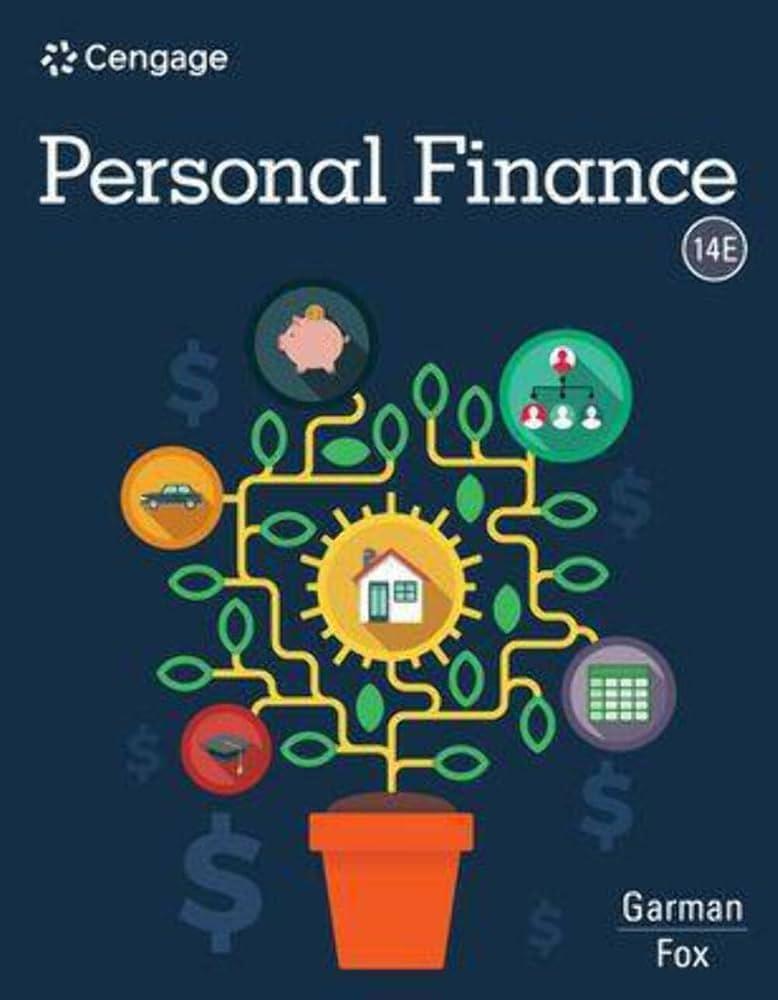
Personal Finance for Millennials
Improving your credit score is a crucial step towards achieving financial stability and unlocking better opportunities for loans and credit cards. Make it a habit to check your credit report regularly; this will help you identify any inaccuracies that may be dragging your score down. You are entitled to a free copy of your report from the major credit bureaus once a year. Consider these effective strategies to help you boost your score:
- Pay bills on time: Setting up reminders or automatic payments can help you stay on track.
- Reduce credit card balances: Aim to keep your credit utilization under 30% of your credit limit.
- Limit new credit inquiries: Too many hard inquiries can negatively impact your score.
As you work on these strategies, remember that patience is key; improving your score doesn’t happen overnight. Here’s a simple table to illustrate how different actions can impact your credit score:
| Action | Impact on Credit Score |
|---|---|
| Pay bills on time | +100 points |
| Reduce credit utilization to below 30% | +50 points |
| Limit hard inquiries | +30 points |
Incorporate these practices into your financial routine and watch your credit score steadily improve over time. The efforts you put in will not only enhance your creditworthiness but also pave the way for future financial opportunities that align with your dreams and ambitions.

Wealth Preservation Strategies
Improving your credit score is a essential aspect of preserving your wealth in today’s financial landscape. A higher credit score not only opens the doors to better lending terms but also reduces the cost of borrowing. By consistently making on-time payments and managing your debts responsibly, you can enhance your creditworthiness. To maintain a robust credit score, consider the following strategies:
- Regularly check your credit report: Identify and rectify errors that could adversely affect your score.
- Keep credit utilization low: Aim to use less than 30% of your available credit.
- Diverse credit mix: Cultivate a range of credit types (e.g., installment loans, credit cards) to demonstrate your ability to manage different forms of credit.
Applying these strategies can empower you to maintain a favorable credit profile, thereby enabling you to make prudent financial decisions that contribute to your overall wealth. Additionally, consider the duration of your credit history; longer credit accounts positively influence your score. Below is a quick overview of factors that affect your credit score:
| Factor | Percentage Contribution |
|---|---|
| Payment History | 35% |
| Credit Utilization | 30% |
| Length of Credit History | 15% |
| Types of Credit | 10% |
| New Credit Inquiries | 10% |
Final Thoughts
In the journey of financial health, your credit score serves as a vital compass, guiding you toward better opportunities and brighter prospects. Just as a gardener carefully tends to their plants, nurturing them with the right conditions to thrive, the steps toward improving your credit score require patience, dedication, and informed strategies. As you embark on or continue this transformative process, remember that every small effort counts, whether it’s checking your credit report for errors, paying bills on time, or managing debt wisely.
Ultimately, the path to a healthier credit score is paved with knowledge and diligence. Each positive change can open doors to loans with favorable terms, lower interest rates, and financial freedom. So, take a moment to reflect on your situation, set clear goals, and cultivate a sustainable plan to enhance your credit standing. Because in the realm of finance, just as in life, it’s never too late to plant the seeds of improvement and watch them blossom into a brighter future.


